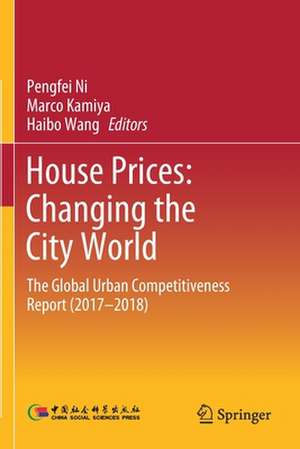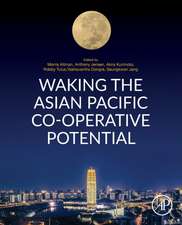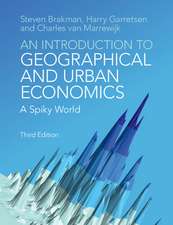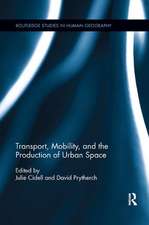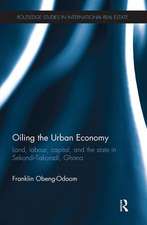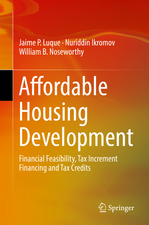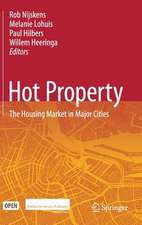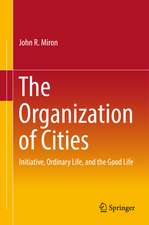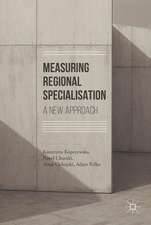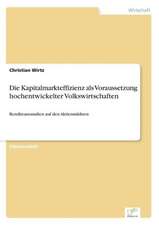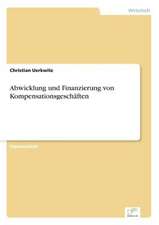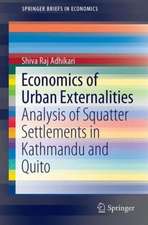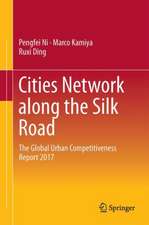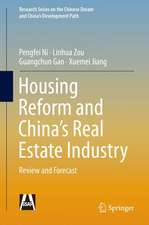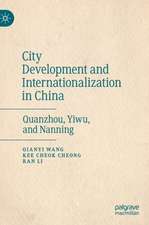House Prices: Changing the City World: The Global Urban Competitiveness Report (2017–2018)
Editat de Pengfei Ni, Marco Kamiya, Haibo Wangen Limba Engleză Paperback – 11 ian 2021
While paying attention to the comparison of competitiveness among cities, this report further promotes the perspective to the pattern and trend change of global economic and social development from the perspective of city. The followings are new findings: First, information technology has increasingly become the primary driving force for urban development; Second, it is the three meridians that divide the global urban population and economic differentiation; Third, the soft links between cities gradually dominate the global urban system; Fourth, the formation of new global cities is beginning.
| Toate formatele și edițiile | Preț | Express |
|---|---|---|
| Paperback (1) | 656.89 lei 6-8 săpt. | |
| Springer Nature Singapore – 11 ian 2021 | 656.89 lei 6-8 săpt. | |
| Hardback (1) | 663.60 lei 6-8 săpt. | |
| Springer Nature Singapore – 4 dec 2019 | 663.60 lei 6-8 săpt. |
Preț: 656.89 lei
Preț vechi: 772.81 lei
-15% Nou
Puncte Express: 985
Preț estimativ în valută:
125.71€ • 136.50$ • 105.60£
125.71€ • 136.50$ • 105.60£
Carte tipărită la comandă
Livrare economică 22 aprilie-06 mai
Preluare comenzi: 021 569.72.76
Specificații
ISBN-13: 9789813291133
ISBN-10: 9813291133
Ilustrații: XVI, 618 p. 296 illus., 263 illus. in color.
Dimensiuni: 155 x 235 mm
Greutate: 0.88 kg
Ediția:1st ed. 2019
Editura: Springer Nature Singapore
Colecția Springer
Locul publicării:Singapore, Singapore
ISBN-10: 9813291133
Ilustrații: XVI, 618 p. 296 illus., 263 illus. in color.
Dimensiuni: 155 x 235 mm
Greutate: 0.88 kg
Ediția:1st ed. 2019
Editura: Springer Nature Singapore
Colecția Springer
Locul publicării:Singapore, Singapore
Cuprins
CHAPTER1 ANNUAL RANKING OF GENERAL GLOBAL URBAN COMPETITIVENESS IN 2017.- CHAPTER 2 GENERAL REPORT.- CHAPTER 3 RESEARCH BACKGROUND AND LITERATURE REVIEW.- CHAPTER 4 THE RELATIONSHIP BETWEEN HOUSING PRICES AND URBAN COMPETITIVENESS: A THEORETICAL FRAMEWORK.- CHAPTER 5 GLOBAL URBAN REAL ESTATE MARKET STATUS.- CHAPTER 6 RELATIONSHIP BETWEEN THE HOUSING PRICE AND COMPETITIVENESS :EMPIRICAL ANALYSIS.- CHAPTER 7 CITY STORY: HOUSE PRICES AND COMPETITIVENESS.- CHAPTER 8 ECONOMIC FOUNDATIONS FOR SUSTAINABLE URBANIZATION: THE LINK WITH COMPETITIVENESS.- CHAPTER 9 GLOBAL URBAN COMPREHENSIVE ECONOMIC COMPETITIVENESS REPORT 2017-2018.- CHAPTER 10 GLOBAL URBAN SUSTAINABLE COMPETITIVENESS REPORT 2017-2018.
Notă biografică
Ni Pengfei, Director of Center for City and Competitiveness, CASS; Assistant to the Director of National Academy of Economic Strategy , CASS; PhD in economics, research fellow and doctoral supervisor. Leader and Chief Urban Economist of the CASS-UN-Habitat joint research group. Specialized in theoretical and applied studies in urban economics, urban competitiveness and real estate economics.
Marco Kamiya, Coordinator of Urban Economy and Finance Branch, UN-HABITAT, research interests: Development Economics, Public Economics. The head of the Urban Economy and Finance Branch of UN-Habitat, headquartered in Nairobi. Kamiya leads global operational work on urban economy and finance and conducts research on municipal finance, the economics of urban expansion and local infrastructure-investment policy.
Wang Haibo, Ph.D. in economics and postdoctoral fellow at CASS National Academy of Economic Strategy. Research interests: competitiveness and real estate economy.
Textul de pe ultima copertă
This report was jointly launched by the National Academy of Economic Strategy of the Chinese Academy of Social Sciences and UN-HABITAT. Using the indicator system and objective data, the competitiveness of 1,035 global cities was evaluated in detail. The report measures the development pattern of global urban competitiveness as a whole, and the gap between the relevant parties and the ideal state. It has refreshed people's past perceptions of urban rankings and confirmed that the science and technology innovation center cities and central cities of emerging economies have begun to break the inherent global cities and they have entered the ranks of the most urban competitiveness.
While paying attention to the comparison of competitiveness among cities, this report further promotes the perspective to the pattern and trend change of global economic and social development from the perspective of city. The followings are new findings: First, information technology has increasingly become the primary driving force for urban development; Second, it is the three meridians that divide the global urban population and economic differentiation; Third, the soft links between cities gradually dominate the global urban system; Fourth, the formation of new global cities is beginning.
Caracteristici
The authors are the eminent scholars and researchers from prestigious universities and institutions The topic is a hot issue for scholars and experts to discover the development of global urban competitiveness The materials, including data, illustrations, are the newest ones, they can help readers and researchers to better understand and research urban development and competitiveness
